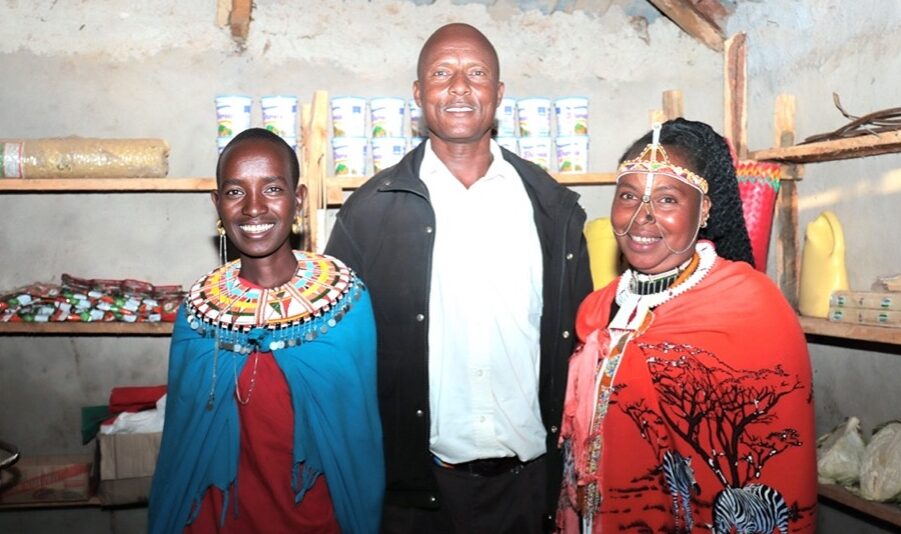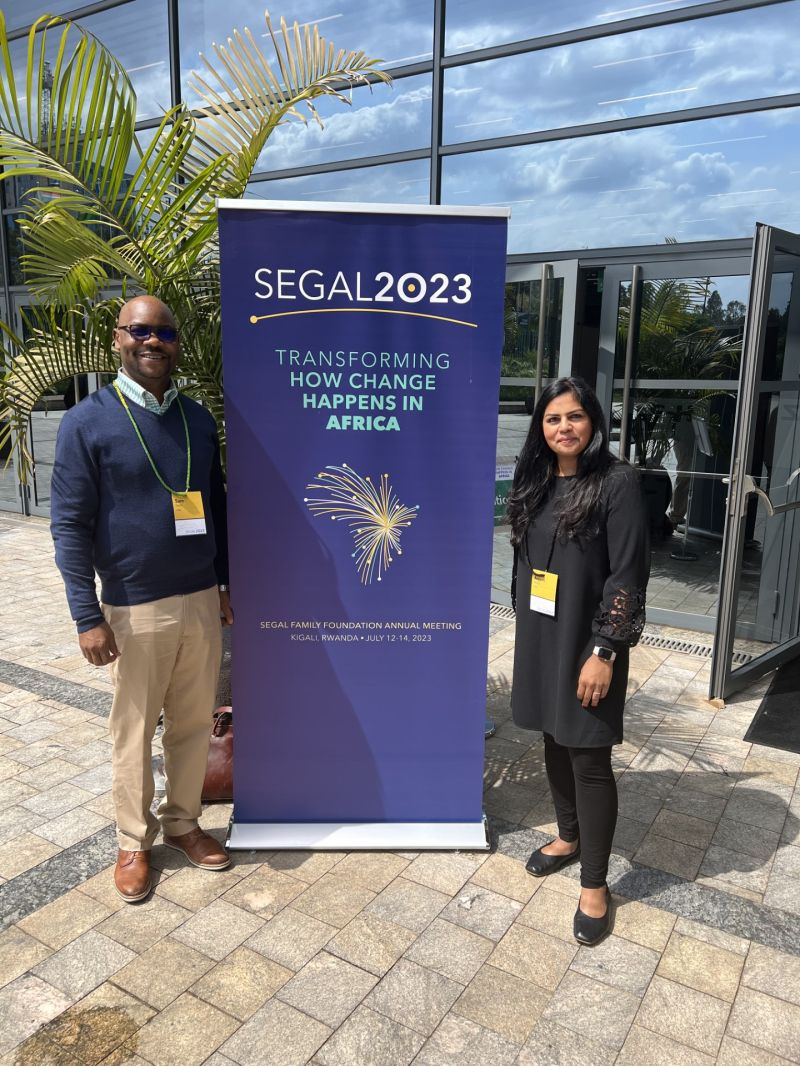The Latest News from BOMA, August 2023
Updates from BOMA’s Programs in Kenya and Beyond

This Quarter, we celebrate the transformation of 704,352 lives thanks to BOMA’s work, bringing us half-way to our goal of reaching 50,000 participants in 2023. We’re excited to share the latest news from our programs in Kenya and beyond.
Rural Entrepreneur Access Program (REAP)
Between April and June, BOMA’s work grew with the enrollment of 6,090 participants — split into 2,030 business groups — through our Rural Entrepreneurship Access Program (REAP). These participants spread across Turkana, Marsabit, Samburu, Wajir and Garissa are participating in a pilot for the 12-month version of our standard REAP approach. In Ethiopia, we are continuing to implement the Entrepreneurship and Market Inclusion for Transformation (EMIT) project alongside Caritas Switzerland with support from Whole Planet Foundation, and Cartier Philanthropy. EMIT has enrolled 3,000 participants in REAP since 2022 and will is expected to lift 21,000 people in Ethiopia’s Borena Zone from extreme poverty by 2024.
Green REAP
A number of new participants were also enrolled under BOMA’s climate-adapted approach, Green REAP, this quarter thanks to Livelihoods and Inclusion for Transformation in Kenya (LIFT). We are also beginning to implement Green REAP in Ethiopia through a program that will ultimately enroll 2,100 new entrepreneurs while supporting the restoration of degraded forests and pasture in the drylands of southern Ethiopia.
REAP for Nutrition
BOMA is promoting food security through our REAP for Nutrition approach, currently being implemented directly by BOMA in Kenya’s Isiolo and Marsabit counties. These participants, enrolled in May 2022, are on track to graduate in Quarter Three with 90 percent reporting multiple income sources, 92 percent of households eating at least two meals per day, and 79 percent of households with all female children enrolled in school. This nutrition-focused approach has been developed through the ongoing USAID Nawiri consortium, being implemented in Samburu and Turkana counties, Kenya. Nawiri is a five-year program funded by USAID’s Bureau of Humanitarian Assistance and led by Mercy Corps, with consortium partners BOMA, the African Population and Health Research Center, RTI International, Save the Children, and the Government of Kenya. This Quarter, BOMA and our Nawiri partners distributed progress grants — intended to help participants grow and diversify their enterprises — to 2,900 business groups.
REAP for Youth
BOMA’s REAP for Youth approach is currently being implemented through the Sustainable Entrepreneurship and Economic Development (SEED) for Vulnerable and Marginalized Youth program, launched in partnership with Smart Regional Consultants (SRC). SEED aims to empower 2,400 youth in Kenya’s Marsabit and Isiolo counties, Kenya, to graduate from extreme poverty through the establishment of 800 youth enterprises over two years. The first SEED cohort of 1,200 entrepreneurs graduated from the program in April, and BOMA is now collecting our learnings from this initial group of youth participants. In May, BOMA and SRC also celebrated the launch of a third cohort made up of 1,200 participants. Monitoring for the second cohort of SEED participants, enrolled in October 2022, is on track with 93 percent reporting strong business values.
REAP for Refugees
BOMA is reaching participants throughout Africa under REAP for Refugees, with programming adapted for refugees, displaced persons, and host communities taking place in Kenya, Uganda, Cameroon and Burkina Faso. In Cameroon, BOMA is working alongside the Danish Refugee Council (DRC) to reach 2,000 participants including refugees from the Central African Republic. During Quarter Two, we worked with DRC to evaluate the successes and challenges of this project at the halfway point. This evaluation found that the program has helped households to meet their short and long-term goals through the livelihoods they’ve built and the savings they’ve grown through the REAP for Refugees approach. We also found that this project successfully reached a diverse range of participants including senior citizens and people with disabilities and facilitated their effective participation by fostering positive dynamics within business groups.
As BOMA’s programs continue to transform lives across Africa’s drylands, Team BOMA is ardently working to expand support for our work and share our learnings. Our CEO Sam Owilly traveled to South Africa in June for the Resilience Evidence Forum hosted by the Global Resilience Partnership Forum in conjunction with USAID to share our learnings on resilience, economic inclusion, and even hope. Sam spoke in conjunction with our partners from the Feed the Future Lab for Markets, Risk, and Resilience which is currently evaluating the effectiveness of REAP.
In their research, they have found that BOMA participants experienced a 509% increase in savings, bolstering their resilience in the face of crises like drought and empowering their households to invest in the future. Additionally, income increased by 32% and assets grew by 324%, providing participants with a foothold to begin growing generational wealth and upward mobility. Overall, REAP delivers a return on investment (ROI) of 3.1, meaning that every $1 invested in BOMA’s program delivers about $3 in benefits to the communities we serve. The impacts of REAP are not just financial, however. Feed the Future researchers have also found that enrollment in REAP has a positive impact on participant’s aspirations and hopes for the future.
“We found that [REAP] relaxed constraints enough that participants were willing to work harder to achieve something they value,” said Michael Carter, Director of the Feed the Future Innovation Lab for Markets, Risk and Resilience. “Putting a stronger livelihood within reach emboldened women to do what it takes to achieve it.”
Additionally, Sam and BOMA’s new Senior Director of Development Anjum Khalidi traveled to Kigali, Rwanda to share insights from BOMA’s work with participants at Segal 2023, hosted by Segal Family Foundation.

